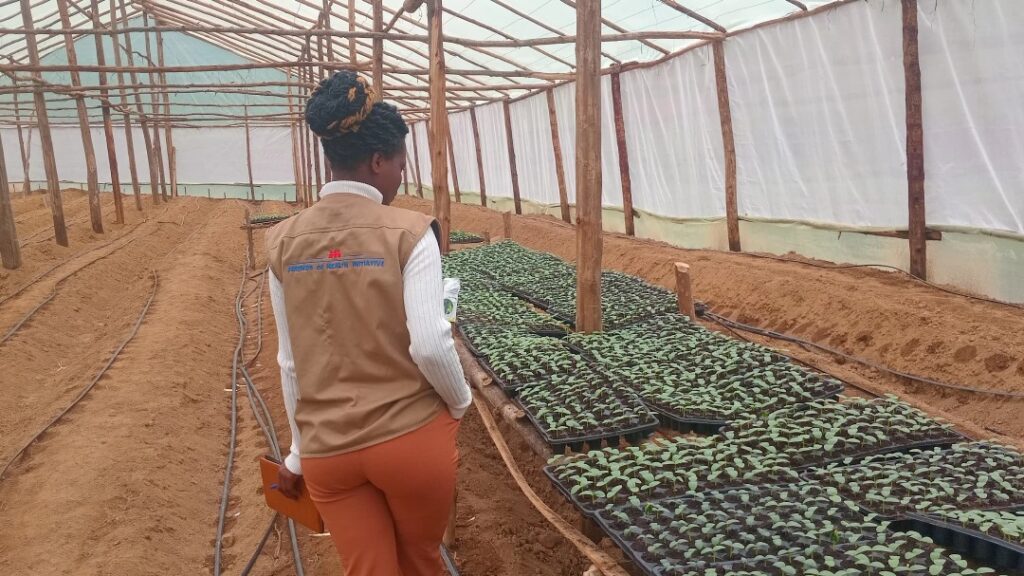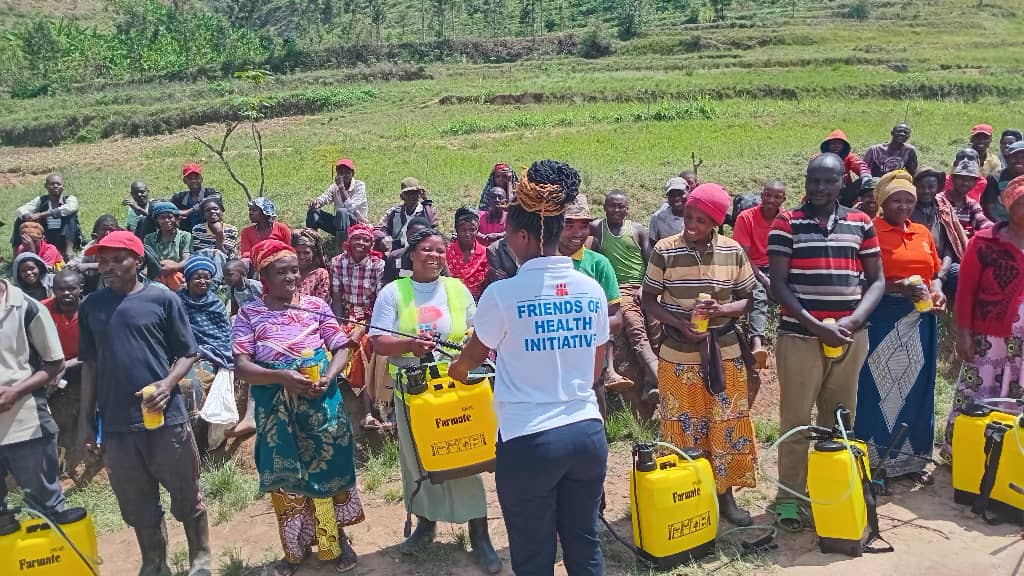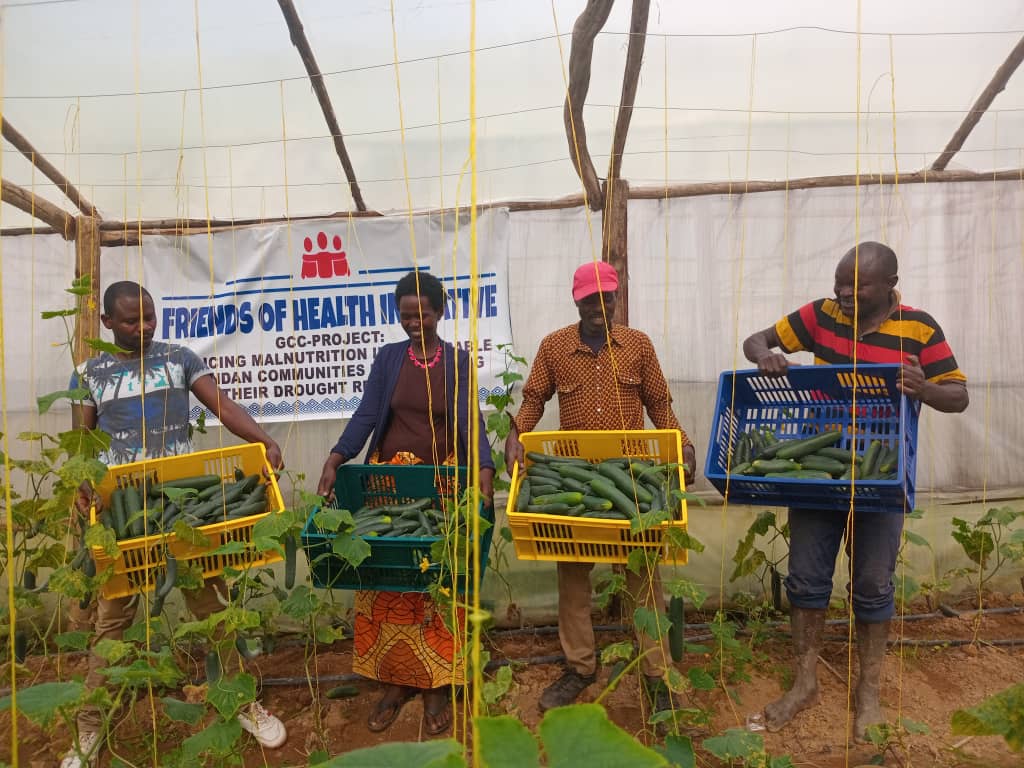Archives
Categories
Reducing malnutrition in vulnerable Rwandan communities by enhancing their drought resilience

The Friends of Health Initiative (FHI) is implementing an innovative project in Rwanda’s Rulindo District aimed at reducing malnutrition and strengthening drought resilience among smallholder farmers. The project targets vulnerable rural households that depend on rain-fed agriculture and are highly affected by prolonged dry seasons, declining soil fertility, and food insecurity.
To address these challenges, FHI introduced an eco-friendly system that extracts irrigation water and compost from discarded banana stems and other agricultural waste, providing a sustainable source of agricultural water and organic fertilizer even during droughts. Through hands-on training and demonstration farms, participants are learning how to install, operate, and maintain the system, as well as practice climate-smart farming in both greenhouse and open-field settings.
The project also supports the establishment of 10 farmer groups that serve as savings and learning hubs. Members receive seeds, tools, and technical guidance to manage greenhouse farms producing diverse, nutritious crops such as tomatoes, beans, cucumbers, and peppers. In addition, 20 peer educators have been trained to extend knowledge on water harvesting, composting, and nutrition-sensitive agriculture to other community members.


So far, the initiative has led to a fivefold increase in crop yields, improved year-round food availability, and greater household income among 230 farmers (124 women and 106 men).. Over 80% of participating women now report access to a more diverse and balanced diet for their families.
By combining innovation, capacity building, and community empowerment, the project is creating a lasting impact, reducing malnutrition, increasing food security, and building climate resilience in Rulindo’s vulnerable farming communities.
